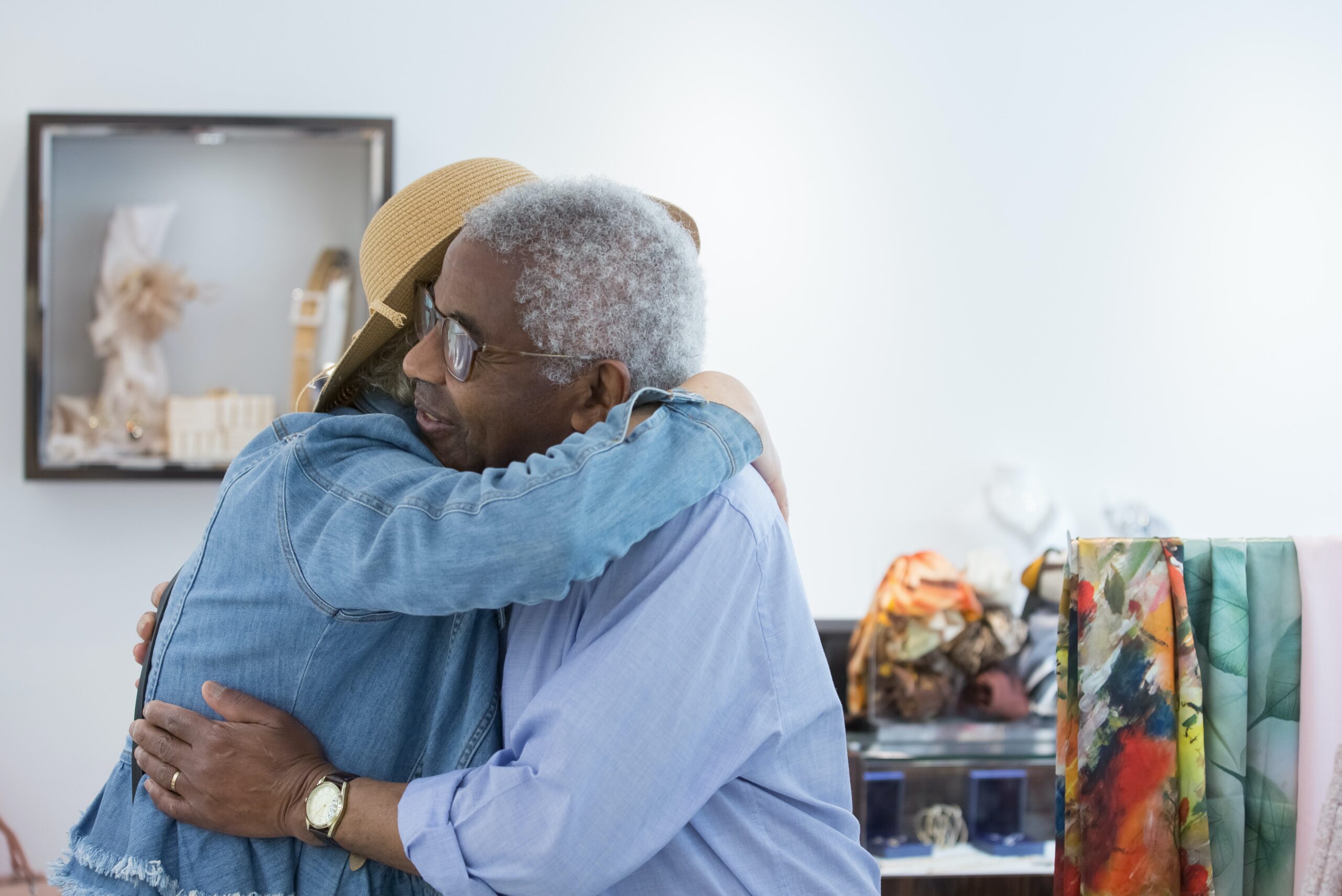Question 4
Sexuality

Sexuality is defined by the World Health Organisation as “a central aspect of being human throughout life, and encompasses sex, gender, identities and roles, sexual orientation, eroticism, pleasure, intimacy, and reproduction”. Sexuality consists of many constructs, and includes physical, psychological, and social components. Sexuality can have a different meaning to each person, however, can be an important part of self-expression.
Question 4 relates to the resident’s understanding of and needs for sexuality, highlighting its significance and the desired expression of sexuality that they may enjoy.
Sexuality can be an important part of life for older people. Sexuality can mean different things to different people.
4A: What does sexuality mean to you?
4B: How important is it to you to be able to express your sexuality in your life?
4C: Would you like to add or tell me anything else about this before we move onto the next question?
4D: How would you prefer to express your sexuality?
4E: What, if anything, is getting in the way of you being able to express your sexuality in the way you want to express it?
The resident may indicate several ways that would like to express their sexuality. Below are several suggestions for how these preferences can be supported:
Through their appearance (e.g., clothing, makeup, pedicure/manicure)
- Encourage the resident to express their personal style preferences and provide options for them to choose from, such as different clothing styles, colours, and makeup options.
- Provide regular grooming services, such as haircuts, pedicures, and manicures, and incorporate the resident’s preferences into the service.
- Provide access to appropriate resources and materials, such as mirrors, makeup, and hair products, to allow the resident to maintain their preferred appearance.
- Respect the resident’s decisions regarding their appearance and avoid making assumptions about their preferences or abilities based on their age or physical condition.
- Work with the resident and their family or friends to identify and address any financial or logistical barriers that may prevent them from accessing desired appearance-related services.
Through being in intimate casual and/or committed relationships with others (e.g., intimate touching, cuddling/hugging, kissing, flirting, and/or romantic gestures)
-
It is important to have an open discussion with the resident about their desire for intimate relationships and behaviours, including understanding their preferences and boundaries for engaging in such behaviours.
- If the resident is interested in forming intimate relationships, it may be helpful to hold social groups or events (e.g., Valentines’ Day theme dining) that cater to residents looking for companionship.
-
Care providers and care staff can help create a safe and respectful environment that allows for the expression of intimacy, such as providing private spaces for residents to engage in intimate behaviours, and ensuring that consent and boundaries are respected.
Through engaging in sexual behaviour/activity (e.g., with themself or someone of the same and/or opposite sex and gender as them, and/or with multiple partners)
-
It is important to respect the resident’s right to privacy and freedom of expression.
-
If a resident expresses a desire to engage in these activities, care staff should assess the resident’s capacity to understand the content and potential consequences, as well as the impact on other residents and care staff, if any.
-
Encourage open and non-judgmental communication between the resident and their care team to discuss their intimate and sexual desires and preferences.
-
Discuss safe and consensual sexual activity, if appropriate, with the resident.
-
Consider modifying the environment to enable privacy and encourage expression of intimacy and sexuality, such as providing a “do not disturb” sign, a lock on the door or curtains for privacy.
-
Respect the resident’s choices and preferences, as long as they do not violate the rights or safety of others.
-
Seek support and guidance from professionals with expertise in sexual health and aging, such as geriatrician, geriatric sex therapists or counsellors, to ensure that the residents’ needs are met in a healthy and safe manner.
-
If a resident’s behaviours become disruptive or harmful, care staff should work with the resident and their healthcare provider to develop a care plan that addresses the underlying needs while promoting safety and wellbeing for all.
Talking about sexuality with someone else, or in a group
-
Provide information about support groups or therapy sessions that specifically address issues related to sexuality in older adults. These groups can provide a safe and supportive environment for residents to discuss their concerns and experiences with others who may have similar concerns.
-
Offer the option of speaking with a therapist or counsellor who specialises in sexuality and aging. This can be a valuable resource for residents who may feel more comfortable speaking one-on-one with a professional.
-
Consider organising a discussion group on sexuality and aging for residents. This can provide a space for residents to ask questions and share their experiences in a supportive and non-judgmental environment.
-
Encourage open and honest communication with trusted family members or friends who are willing to listen and provide support. Sometimes simply having someone to talk to can make a significant difference in a resident’s sense of well-being.
-
Provide access to educational materials and resources that can help residents better understand their sexuality and sexual health as they age. This can include books, articles, and online resources that offer information and support on a wide range of topics related to sexuality and aging.
Watching TV programs and movies, looking at artwork, music and plays, or reading magazines, journals, and newspapers (such as those of a pornographic/erotic nature)
- It is important to respect the resident’s right to privacy and freedom of expression.
- If a resident expresses a desire to engage in these activities, care staff should assess the resident’s capacity to understand the content and potential consequences, as well as the impact on other residents and care staff, if any.
- Care staff should also consider the appropriateness of the materials based on cultural and religious beliefs of the resident and the community.
- Ensure that the older person has privacy and is comfortable with the chosen activity.
- Provide them with the necessary equipment, such as a TV or a tablet, to engage in the activity.
- Discuss with them any concerns they may have about accessing or viewing this content and provide reassurance as needed.
- Offer guidance and support in navigating and accessing appropriate content.
- Discuss with them any potential risks associated with these activities, such as the risk of scams or malware when accessing pornographic websites, and provide tips on how to stay safe.
- It may be helpful to offer alternative activities that satisfy the resident’s interests while also promoting healthy and respectful relationships, such as discussing romantic novels or watching romance films.
- If a resident’s behaviours become disruptive or harmful, care staff should work with the resident and their healthcare provider to develop a care plan that addresses the underlying needs while promoting safety and wellbeing for all.

